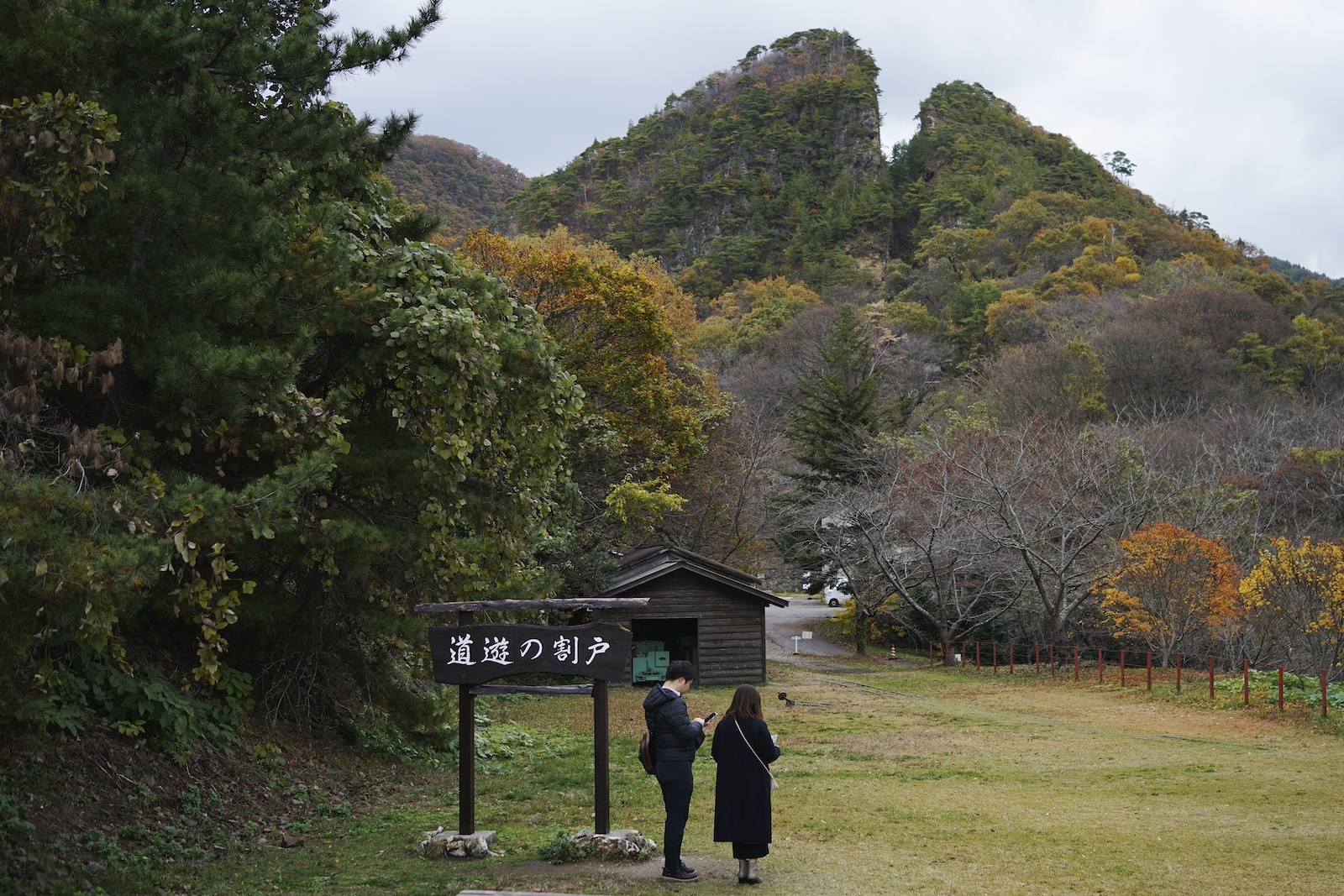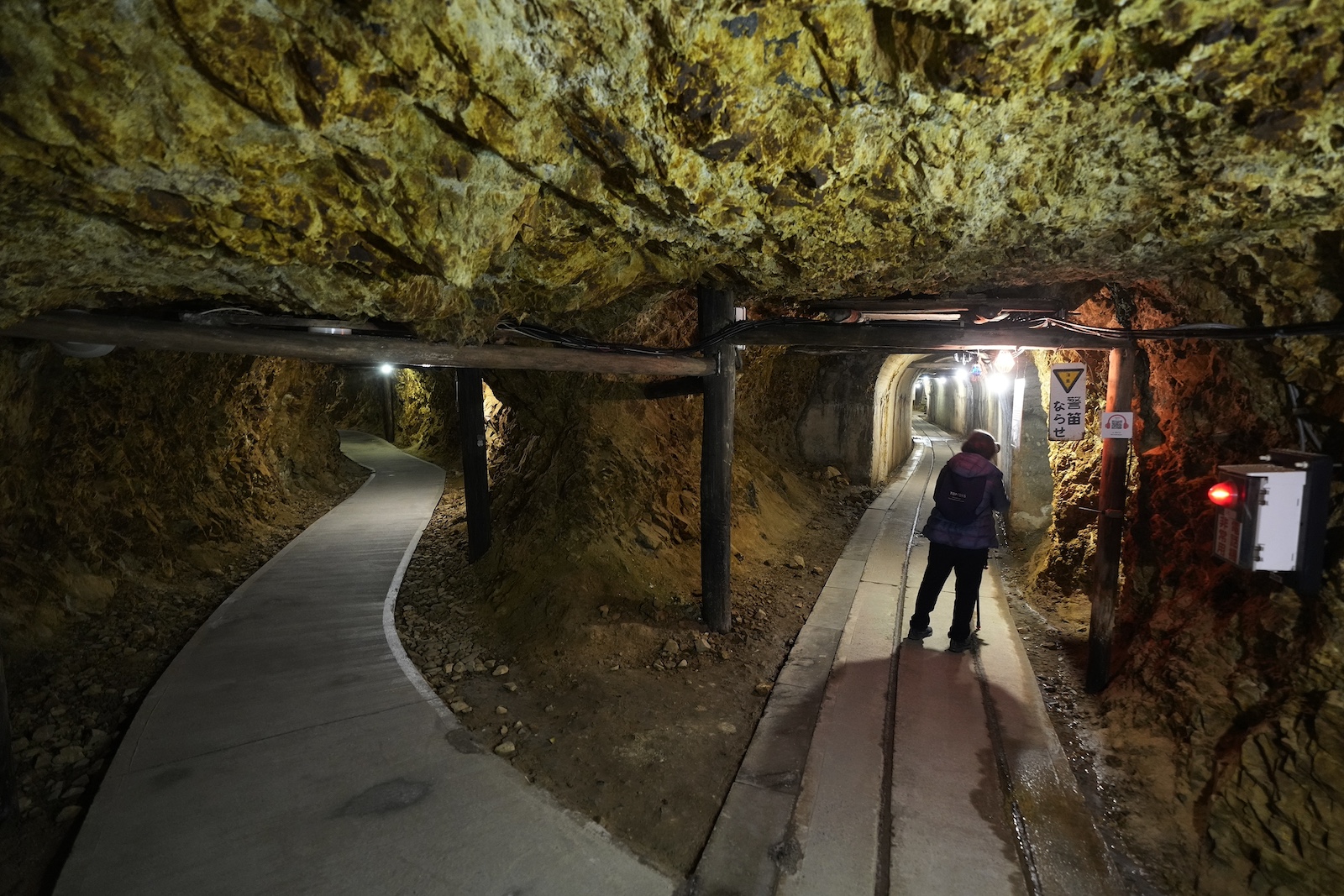Japan held a memorial ceremony on Sunday near the Sado Island Gold Mines despite a last-minute boycott of the event by South Korea that highlighted tensions between the neighbors over the issue of Korean forced laborers at the site before and during World War II.
South Korea’s absence at Sunday’s memorial, to which Seoul government officials and Korean victims’ families were invited, is a major setback in the rapidly improving ties between the two countries, which since last year have set aside their historical disputes to prioritize U.S.-led security cooperation.
The Sado mines were listed in July as a UNESCO World Heritage site after Japan moved past years of disputes with South Korea and reluctantly acknowledged the mines’ dark history, promising to hold an annual memorial service for all victims, including hundreds of Koreans who were mobilized to work in the mines.
On Saturday, South Korea announced it would not attend the event, saying it was impossible to settle unspecified disagreements between the two governments in time.
Families of Korean victims of the mine accidents were expected to separately hold their own ceremony near the mine at a later date.
Masashi Mizobuchi, an assistant press secretary in Japan’s Foreign Ministry, said Japan has been in communication with Seoul and called the South Korean decision “disappointing.”
The ceremony was held as planned on Sunday at a facility near the mines, where more than 20 seats for Korean attendees remained vacant.
The 16th-century mines on the island of Sado, off Japan’s north-central coast, operated for nearly 400 years before closing in 1989 and were once the world’s largest gold producer.

Historians say about 1,500 Koreans were mobilized to Sado as part of Japan’s use of hundreds of thousands of Korean laborers, including those forcibly brought from the Korean Peninsula, at Japanese mines and factories to make up for labor shortages because most working-age Japanese men had been sent to battlefronts across Asia and the Pacific.
Japan’s government has maintained that all wartime compensation issues between the two countries were resolved under a 1965 normalization treaty.
South Korea had long opposed the listing of the site as World Heritage on the grounds that the Korean forced laborers, despite their key role in the wartime mine production, were missing from the exhibition. Seoul's backing for Sado came as South Korean President Yoon Suk Yeol prioritized improving relations with Japan.
The Japanese government said Sunday’s ceremony was to pay tribute to “all workers” who died at the mines, but would not spell out inclusion of Korean laborers — part of what critics call a persistent policy of whitewashing Japan’s history of sexual and labor exploitation before and during the war.

Preparation for the event by local organizers remained unclear until the last minute, which was seen as a sign of Japan’s reluctance to face its wartime brutality.
Japan’s government said on Friday that Akiko Ikuina — a parliamentary vice minister who reportedly visited Tokyo’s controversial Yasukuni Shrine in August 2022, weeks after she was elected as a lawmaker — would attend the ceremony. Japan’s neighbors view Yasukuni, which commemorates 2.5 million war dead including war criminals, as a symbol of Japan's past militarism.
Ikuina belonged to a Japanese ruling party faction of former Prime Minister Shinzo Abe, who led the whitewashing of Japan's wartime atrocities in the 2010s during his leadership.
For instance, Japan says the terms “sex slavery” and “forced labor” are inaccurate and insists on the use of highly euphemistic terms such as “comfort women” and “civilian workers” instead.
South Korean Foreign Minister Cho Tae-yul said Saturday that Ikuina’s Yasukuni visit was an issue of contention between the countries’ diplomats.
“That issue and various other disagreements between diplomatic officials remain unresolved, and with only a few hours remaining until the event, we concluded that there wasn’t sufficient time to resolve these differences,” Cho said in an interview with MBN television.
Some South Koreans had criticized Yoon’s government for supporting the event without securing a clear Japanese commitment to highlight the plight of Korean laborers. There were also complaints over South Korea agreeing to pay for the travel expenses of Korean victims’ family members to Sado.
Kim reported from Seoul, South Korea.
© Copyright 2024 The Associated Press. All rights reserved. This material may not be published, broadcast, rewritten or redistributed without permission. Get your ticket to GaijinPot Expo 2024
Get your ticket to GaijinPot Expo 2024















9 Comments
Login to comment
sakurasuki
That's happened before during listing effort Hashima Island to World Heritage list, Japan promise everything Japan could to Korea at the end just left Korea disappointed after being listed as World Heritage. Now happened again in Sado mines.
https://thediplomat.com/2020/06/remembering-japans-colonial-abuses-against-koreans-on-hashima-island/
https://koreajoongangdaily.joins.com/2020/06/21/national/politics/Hashima-Island-Unesco-Japan/20200621180800345.html
.
Japan always to have own version of history.
https://en.wikipedia.org/wiki/Japanese_history_textbook_controversies
https://www.asahi.com/ajw/articles/14982616
kennyG
Laughable.
So does BOTH KOREA, still stirred up by those who paste meaningless links to the irresponsible so-called ignorant media.
deanzaZZR
President Yoon couldn't make it? Bummer.
piskian
Aso there?
deanzaZZR
@piskian Think south. Aso Cement factories were in Kyushu. These factories were desperate for laborers during the mid 1940s as well.
OssanAmerica
I think it was childish and unconstructive for South Korea to boycott this memorial service meant to remember all who died, regardless of Japanese, Korean or Chinese.
It doesn't alter anyone's position on the forced labor issue one way or the other.
smithinjapan
OssanAmerica: "It doesn't alter anyone's position on the forced labor issue one way or the other."
Well, that's because of the inability with Japan to actually come to grips with its history and the acts of horror it committed. With this site and Gungkanjima (however it's spelled) and Hashima Island, as a poster mentioend above, they promised to honestly address the issue and lied. Now, you can say that the boycott won't change things, and that may well be true (UNESCO status should immediately be removed, as with that of the aforementioned island), but if nothing else the SKorean stance has brought quite a lot more attention to the issue than if Japan had simply done what it promised and acknowledged what it had done.
You have to wonder what the Japanese reaction would be if, for example, the US applied for UNESCO status for the area that is home of the atomic bomb creation, saying they promise it'll be a step in healing. Then, when the ceremony comes about, they say, "The atomic bombings ushered in peace and prosperity and saved countless lives. In a way, this ceremony marks the beauty of peace and also commemorates all the victims of war, whether American, Japanese, or otherwise." If Japan chose not to send people and/or were outraged by the whole affair, I'd say they were right, wouldn't you?
South Korea is in the right on this issue.
Eat the left
If a loved one was murdered and the killer somehow held a memorial service, would you want to be there?
WoodyLee
SO SAD.